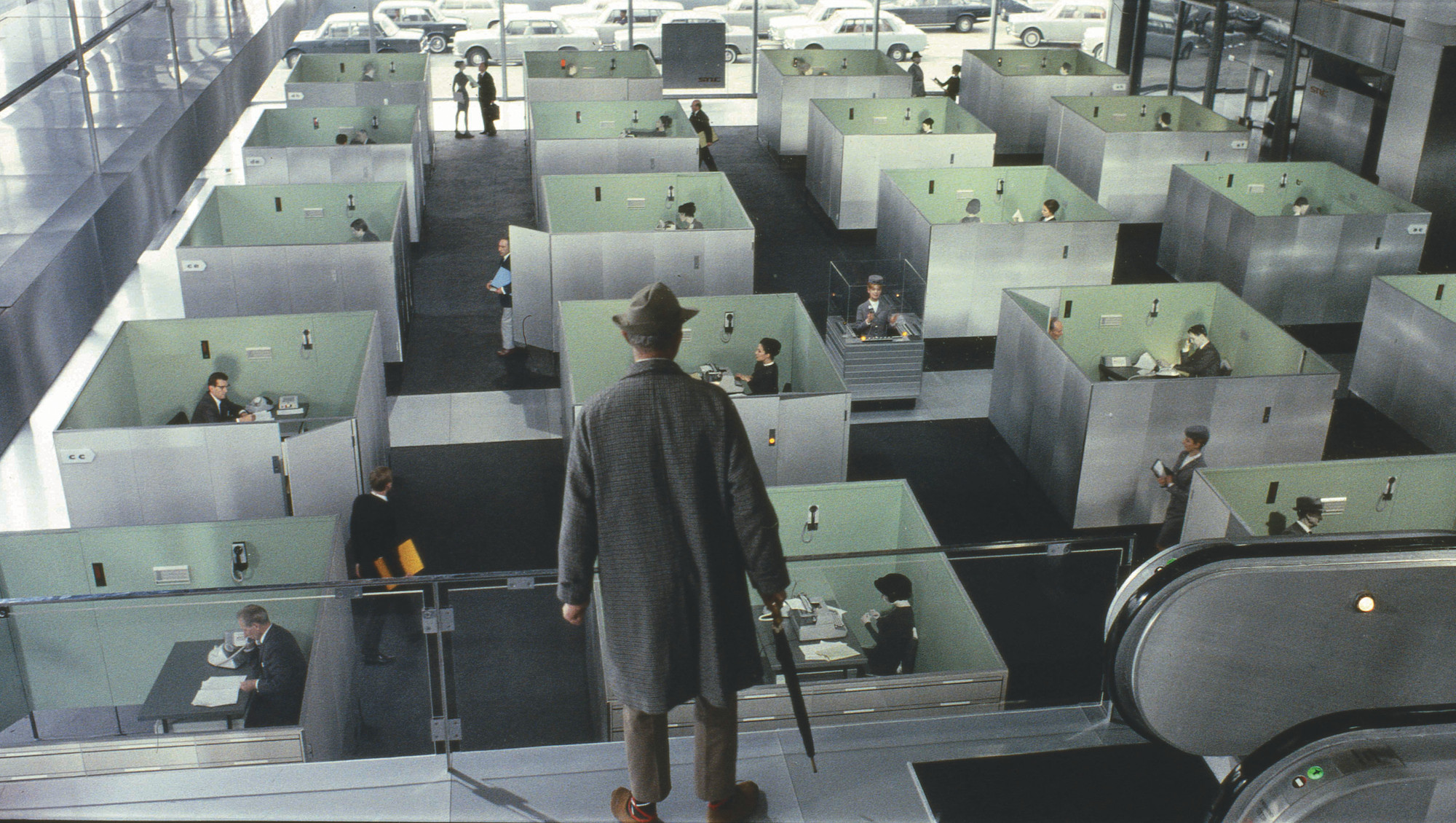What is the future office environment and the future work experience? How did a pandemic change its trajectory? Would organizations have accepted remote work? Could Metaverse and Zoom have found their place in people’s everyday life?
Over the last couple of years, the Future of Work has been a topic on many of our minds. However, the future experience of work is less talked about, and that's something we would like to address in this article.
In this article, we will cover:
- Technology enabled work experiences.
- Work environment trends.
- Why will work change in the future?
- What is the future of work experience.
Technology enabled work experiences:

In 1967, Director Jacques Tati, anticipated the cubical office, in his film Playtime. In the same year, on an episode of the CBS show The 21st Century, Walter Cronkite introduces viewers to the Home Office of 2001. The episode shows him unveiling the future home office with a printer, a computer, a prototype of a videophone, a closed-circuit television system and “electronic correspondence machine.”
Cronkite’s speculative future office in 2001 was based on the predicted 30-hour work and the preference for the suburban life. Technology at that time afforded us the possibility of bringing work home. Office designs were always a reflection of the way societies thought about work- a negotiation between the employee and the employer. Changes in mindset from efficiency and productivity to creativity and collaboration altered the way office spaces were designed.
Though the technology needed to work remotely existed, most employers still required employees to work from the office. Very little people challenged the status quo. The pandemic accelerated the tingling desire most employees had for a more flexible work week, by giving employees more agency in organizing their days and weeks. As businesses move forward, they need to consider the changing social and professional norms, as well as changing personal preferences, and values on personal and workplace wellbeing.
Work environment trends
To fully understand what work will look like in 2050, businesses will need to think about the world they will exist in, the customers or clients they will have, and the desires of their future employees. What types of existing technologies will finally come into play, and what kind of new technologies will be on the market? Where will business meetings take place? Will they even be necessary? These are all questions that must be answered.
Many companies have analyzed trends that will shape the Future of Work, such as this one from Korn Ferry, and this one from HBR. There are many more where those came from, so heres a summary:
Some trends we saw in the past couple of years:
- The power has shifted from organization to people. There is more focus on fairness and equity.
- Scarcity of talent means promoting internal mobility, shorter work weeks, flexible work weeks.
- Focus on employee experience and wellbeing.
- Many tasks usually done by humans will now be automated. We can now focus on human-human interactions.
- More freedom in remote working means more need for accountability.
It's become increasingly clear that the experience of work is heavily influenced by the work environment and company culture. Company environments that nurture a more inclusive culture, create better working experiences for their employees..
Why will work change in the future?
Work changes because people change. Their environments change, needs change, interactions change and technologies change.
In 2006, Microsoft Hardware Group came to us with a problem, "What is the future of smartphones?" Though this might seem like a question with a known answer now, we should never underestimate the role the future of technology has on our daily life, whether this is at home (link to dynamic home) or at work. In that project, we set out to envision a technology-augmented future of smartphones, with the future users in mind.
Similarly, envisioning the future of work involves understanding how work plays into our lives in general, and by speculating how we will interact with technology. If we can understand how technology, lifestyle, human needs, and markets will change in the future, we might be able to speculate on possible future work scenarios. Though this might seem like a lot of uncertainty, core human needs will always be driving us.
For example, in 2006, we were tasked to envision the future of smartphones for Microsoft Hardware Group. The Future of Mobile, codenamed “Rouge,” was an exploration of the Future of Mobile within a home and work context. Using scenario building exercises with designers, this pre-Windows Mobile 7 effort illustrated a world where the smartphone is the only device you need.
On a surface level, this project from almost a decade ago shows us our desire for telecommuting and the technology enabled freedom that comes with it. On a deeper level, it suggests our innate desire for novelty, freedom, agency, and interaction.
The next question is what is the future of work experience 20 years from now?
The answer? What is the world like 20 years from now, and who is living in that world?


No comments.